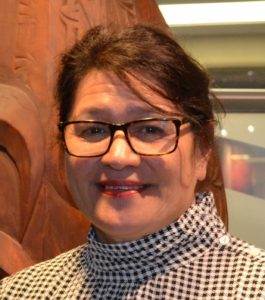
In July this year, a Taranaki nurse had her registration cancelled, with the condition that she may not reapply for it for two years. Should she want to reapply, she would have to undertake study relating to cultural competence and a Nursing Council-approved code of conduct and ethics course. There would also be supervision requirements for a year. She was ordered to pay 15 per cent of the costs of the Health Practitioners Disciplinary Tribunal hearing.
The tribunal found her posts on an NZNO Facebook page in May last year to be “highly offensive and inappropriate”. It went as far as to say “her post makes racist generalisations about Māori nurses and offensive and derogatory generalisations about other nurses and the two key nursing organisations that represent nurses. Despite her attempts to justify her comments as being based on ‘her experience’, this cannot excuse racist generalisations.” Another factor that contributed to the cancellation of her registration was the fact she decided to keep working even after she was suspended, which, the tribunal said, amounted to malpractice.
I commend the tribunal for the decision, for recognising racism and finally drawing a line in the sand and proactively setting some level of expectations. Despite the fact that whakaruruhau and cultural safety have been part of nursing education for the past two decades, cultural safety standards have never been treated or viewed as having the same level of importance as clinical standards.
One of the architects of Kawa Whakaruruhau, Irihapeti Ramsden, recognised that cultural safety is based in attitudinal change. Health professionals work with people whose life experiences and cultures differ from their own. If they are not open-minded and non-judgmental towards other cultures, the care they offer and the wellbeing of their patients will be compromised.
Cultural safety is about the non-violation of all of those attitudes, values and actions which underpin the obligations inherent in Te Tiriti o Waitangi and the practice of tino rangatiratanga. Irihapeti believed that institutional and individual racism persistently violated this taonga and contravened Te Tiriti o Waitangi.
Racism is not acceptable, despite the fact our educational institutions and health policies underpinning nursing practice are inherently racist. If we want to change behaviour, we must address the cellular level of systemic policies to enable attitudinal change.
How have we changed our level of surveillance and monitoring to detect these behaviours? Can we take comfort as Māori that this tribunal hearing was an isolated case? Can we accept that there is a space such as social media that undermines others, that disempowers fellow nurses? There is little comfort in the outcome of this hearing. Disciplining one nurse does not change the system that perpetuates these behaviours.
According to the tribunal, the fact the nurse had named workplaces, departments and one manager made her conduct even more serious. It stated that the Facebook posts were “highly offensive and damaged the mana of Māori nurses and patients in Taranaki”. Where among the penalties imposed by the tribunal is the restoration of mana to Māori nurses, whānau, hapū, iwi and the wider nursing community? And what restoration and support has been given to the person(s) who made the complaint?
Where have we strengthened the obligations that cultural safety is equally important to any other clinical competence and not just “a nice to have”? How are competency standards going to be monitored and reported in the future? I question the current standards within the health sector and the tools used by health regulatory authorities to eradicate racism. Disciplinary measures are often seen as a chance for a nurse to learn and reflect on their behaviours or actions that have caused harm or offence. But this is only one small step in the more radical measures needed to change deeply embedded systems.



